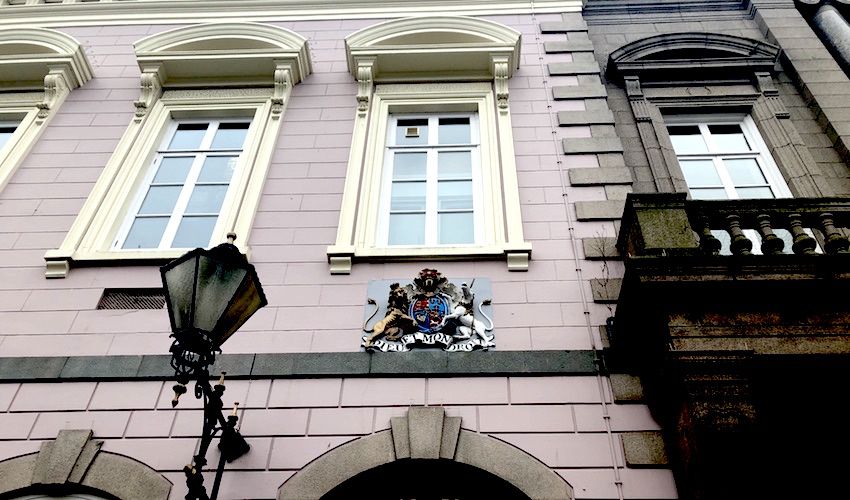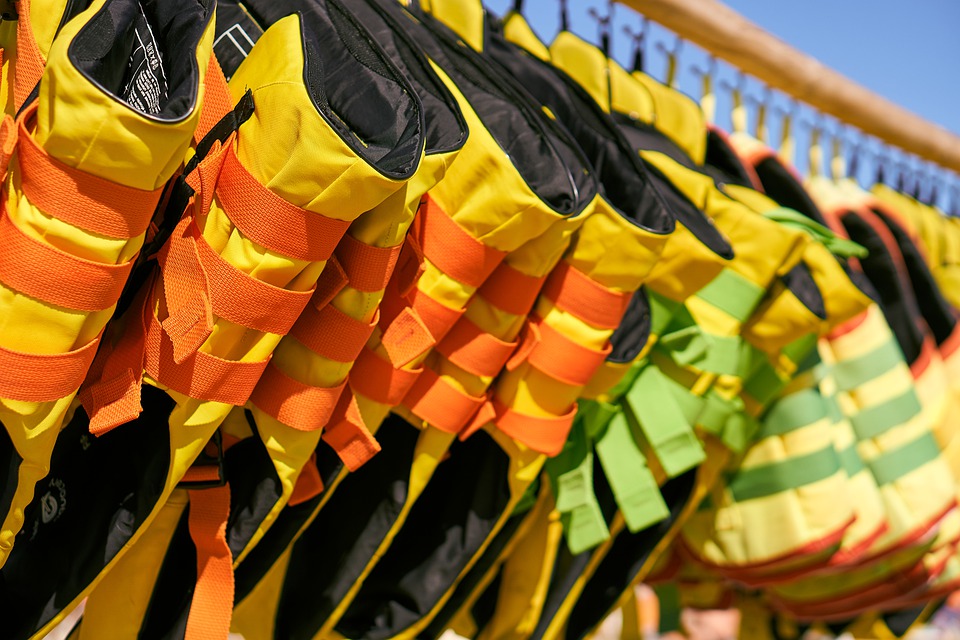

Jersey’s Royal Court has quashed the conviction of a woman for “intentionally or recklessly” exposing two young children to harm, and the convictions of two more people for “aiding or abetting” her.
The trio were originally convicted in the Magistrate’s Court, and given suspended sentences, after they secretly travelled to Jersey from France with the two children in an inflatable boat.
But on appeal, the Royal Court Commissioner, Sir William Bailhache, sitting with Jurats Jerry Ramsden and Charles Blampied, ruled that the Assistant Magistrate Peter Harris had allowed the “clandestine nature of the trip to influence him in his conclusions about risk”, and so got his judgment wrong.
On that basis, all three convictions were set aside, and the appellants were awarded their costs.

Pictured: Three adults and two children travelled to Jersey from France in an inflatable boat - the children were wearing life jackets and the adults had flotation devices.
The case centred on a journey to Jersey from France by the three adults (who have been anonymised to protect the identities of the children), and two children, in a 3.2m inflatable boat they had bought specially for that purpose. The Court described the adults as “experienced boaters.”
The weather was “settled”, with light force two to three winds, slight seas and good visibility.
The children were wearing lifejackets, and the adults had flotation devices, and a marine GPS device to establish their location.
They also had two mobile phones in waterproof covers, and had confirmed there was mobile coverage for the journey, that they had plenty of fuel, and supplies of food and water.
Previously, two of the appellants had already travelled to Jersey for a three-day trip to assess potential landing sites, survey the tides, and check access to roads and buses.

Pictured: The group planned their navigation in detail in advance.
They then prepared their journey, with the Royal Court noting that: “They planned the navigation in detail by looking at relevant navigation charts. They decided to obtain a very shallow draft boat, as the prudent choice of vessel, given the number of hazards and rocks that were apparent from the charts; and they considered the tidal range to give the maximum amount of clearance over the hazards in question.”
In the original trial, the Magistrate’s Court heard from two expert witnesses: Jamie Dollimore, the Coastguard and Vessel Traffic Services Manager at Jersey Coastguard, and Captain Stanley Richard dit Leschery, Maritime Standards Manager for Ports of Jersey and the island’s principal maritime accidents investigator.
They both criticised the preparations made by the trio, and concluded that the occupants of the boat were at significant risk, mainly because of the size and suitability for the journey of that particular inflatable - which had one engine, and no propeller guard - and the lack of a VHF radio.
However, the Royal Court said that Mr Dollimore’s statements did not give “the reader much confidence", and that Captain dit Leschery had "assessed the question of safety very much from a commercial maritime perspective and that he focused on what could go wrong in theory."
“He did not have sufficient detailed knowledge of the planning undertaken, the equipment available or the weather conditions and visibility to make any assessment of what the particular risks were on that particular day. Ultimately his evidence was very much the basis upon which the Assistant Magistrate reached his conclusions,” the Court's judgment read.
The Royal Court took the view that the Assistant Magistrate “should have assessed the expert evidence for what it was - that of experts dealing in the commercial field, who were provided in this case with inadequate briefing for the purposes of the opinions they were asked to express, who addressed most of the issues in terms of generalities, did not examine the equipment in question and who in our judgment failed to have sufficient regard to the critical evidence of the capabilities of the craft in the sea and weather conditions at the time.”
They also criticised the trial process, with the evidence of Captain dit Lechery being introduced “at a very late stage”, and issues relating to the disclosure of statements from Mr Dollimore - one of which contained significant factual errors.
The Royal Court’s judgment commented: “Criminal trials do not take place by ambush. The prosecution is required to disclose its primary case to a defendant, and where the evidence of an expert is to be advanced, to give adequate notice of it so that the defendant knows the case s/he has to meet.”
All of those factors combined gave the Royal Court what they described as “unease” about the trial process.
They also believed that the Assistant Magistrate’s assessment of the risk to the children was wrong, in that “it might or might not have been negligent parenting – about which no doubt there would be argument, but it falls well short of behaviour which is criminal."
“In our judgment, the evidence points in one direction only, namely that the Appellants planned the trip with great care, and it is impossible to support that conclusion which the Assistant Magistrate reached. We think he allowed what he found to be the clandestine nature of the trip to influence him in his conclusions about risk, and that he erred in this respect,” the Court concluded.
On that basis, the Royal Court over-turned the trio’s convictions, and awarded them their legal costs.
Comments
Comments on this story express the views of the commentator only, not Bailiwick Publishing. We are unable to guarantee the accuracy of any of those comments.